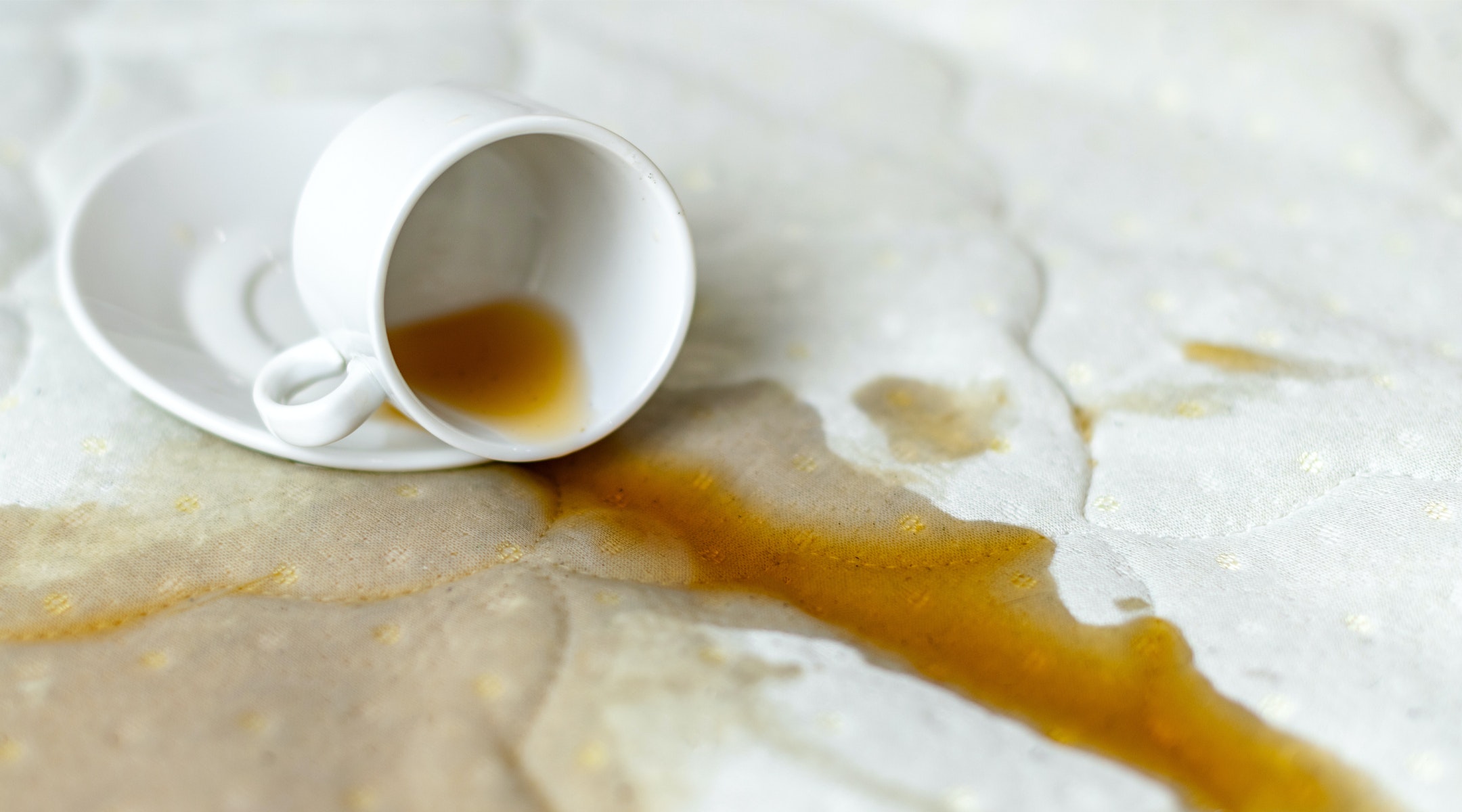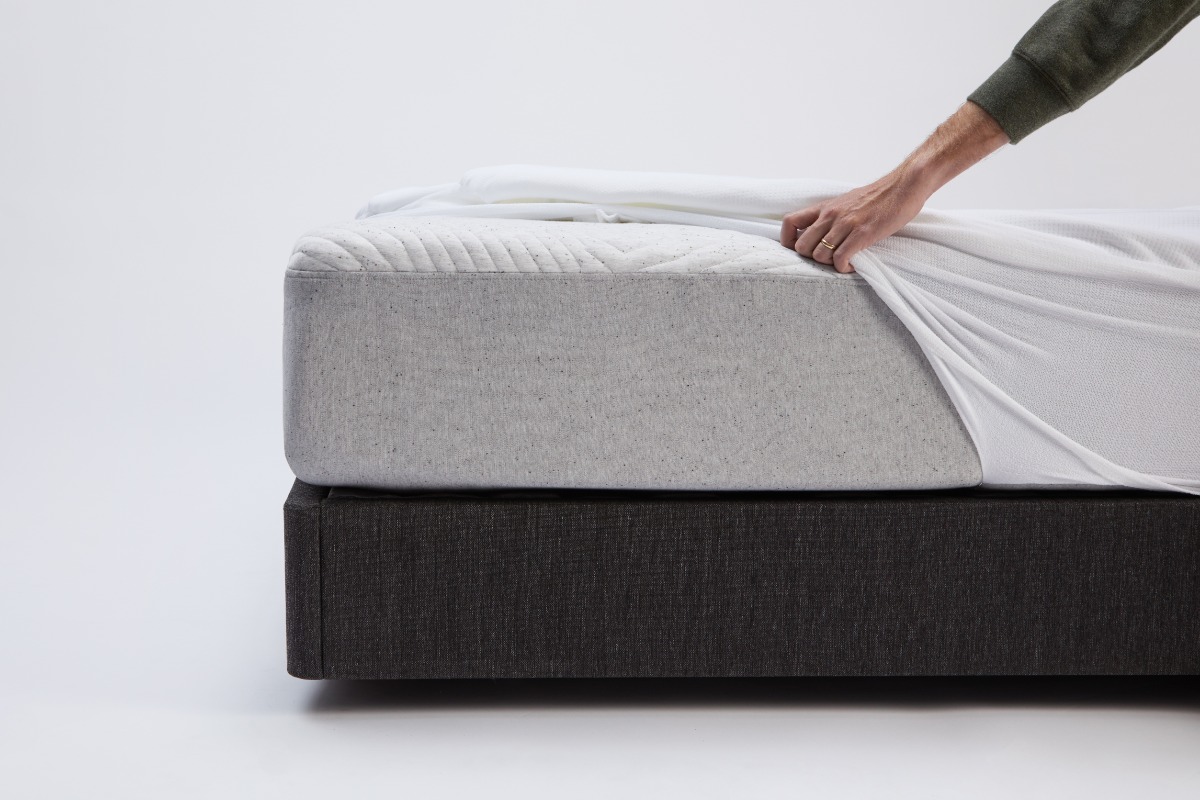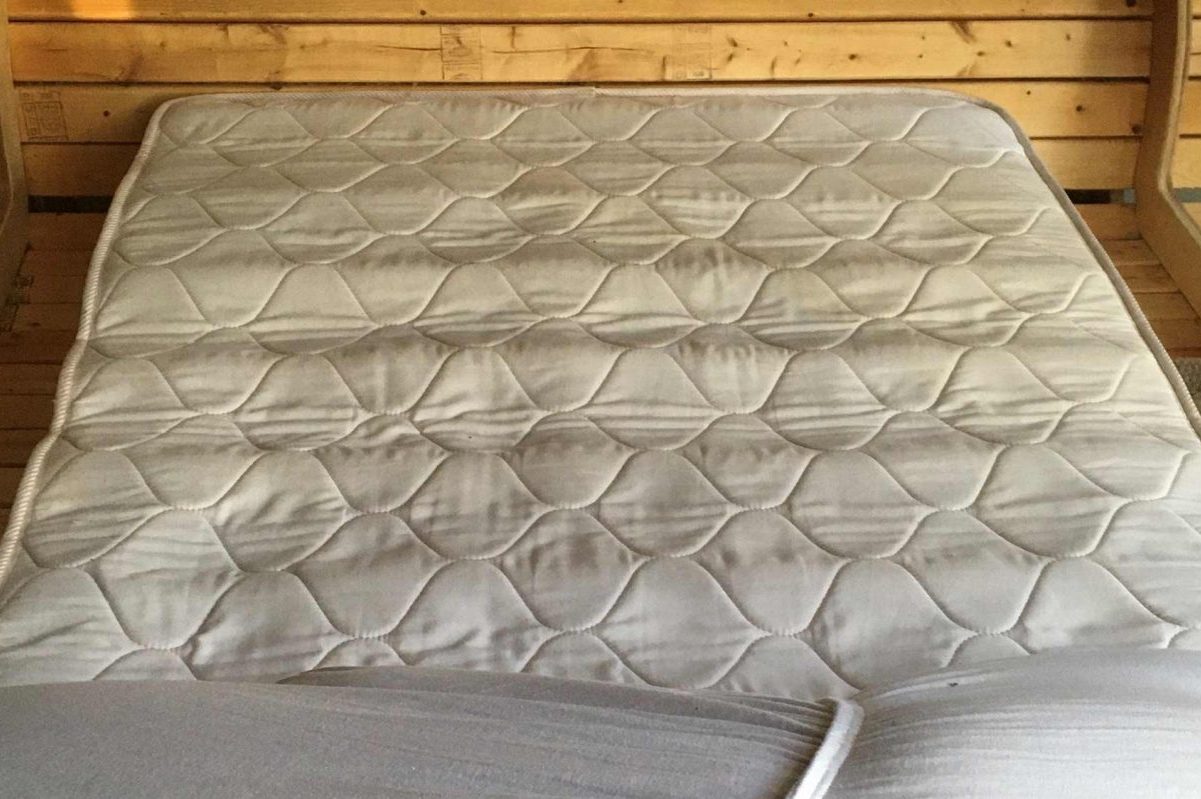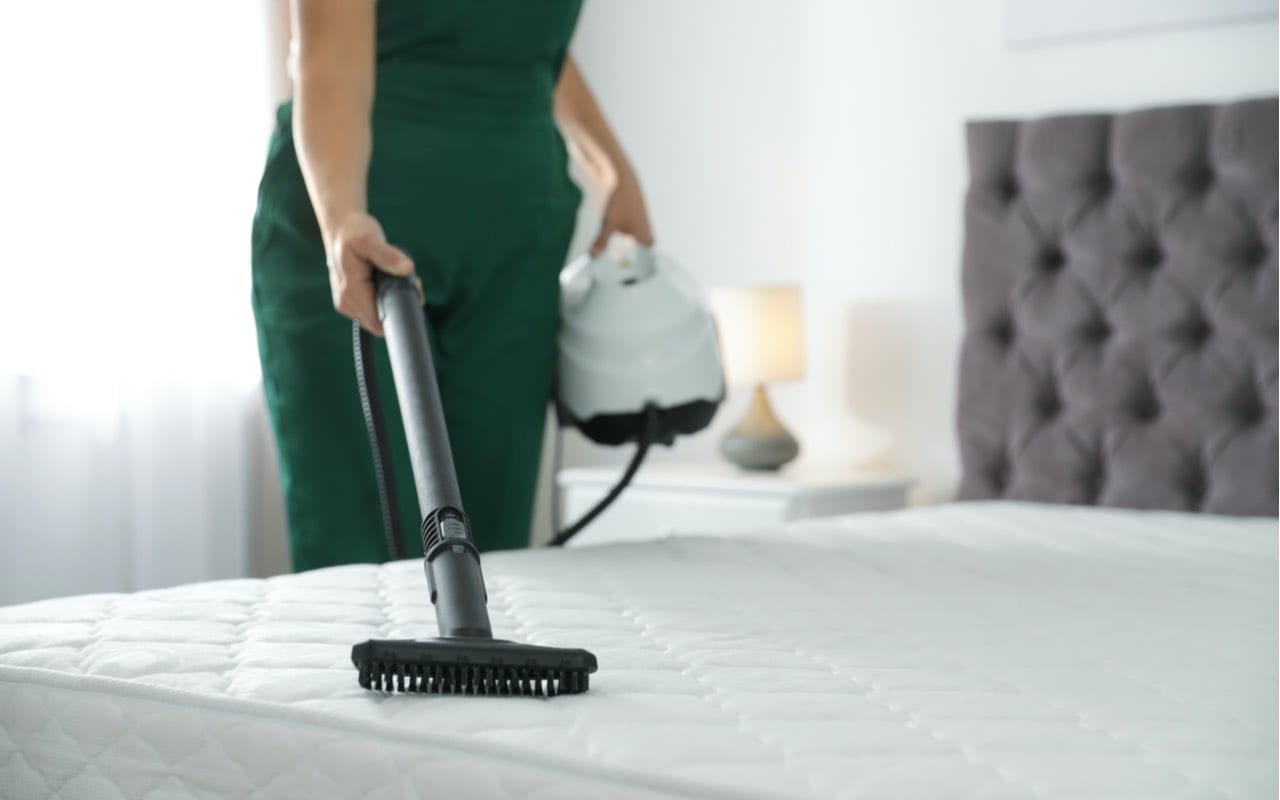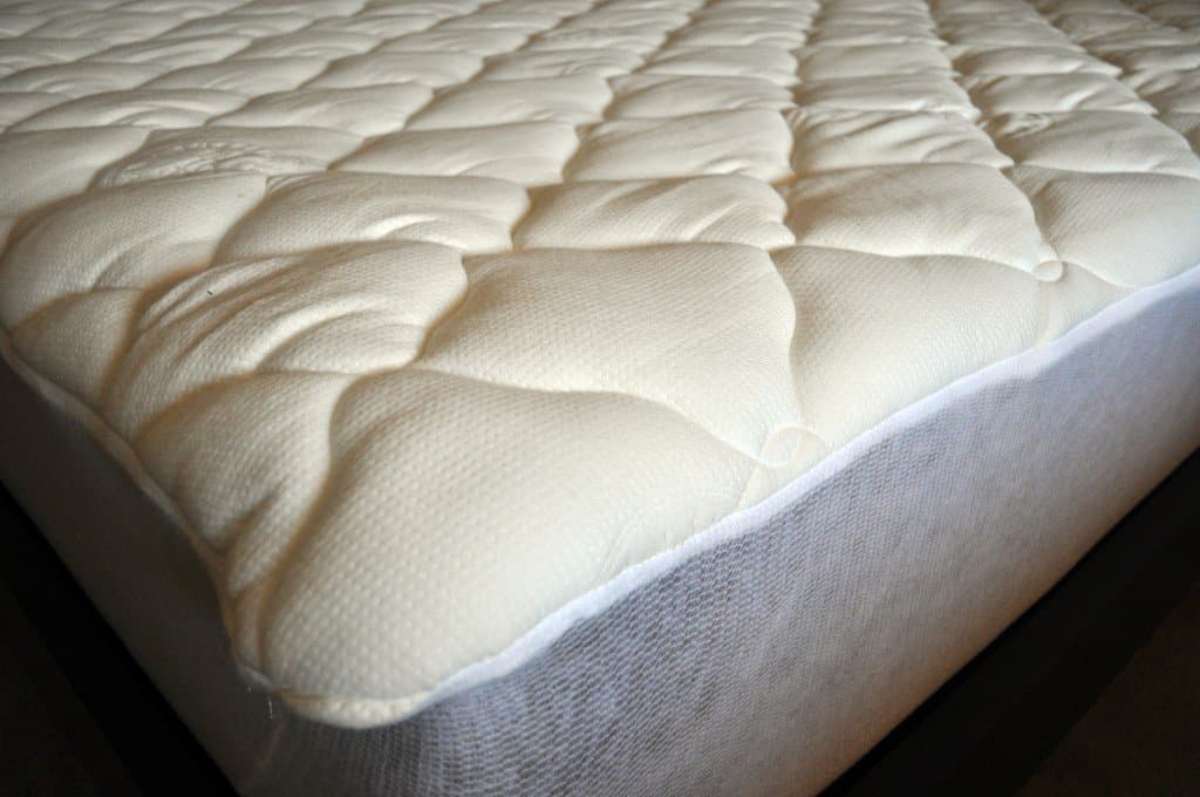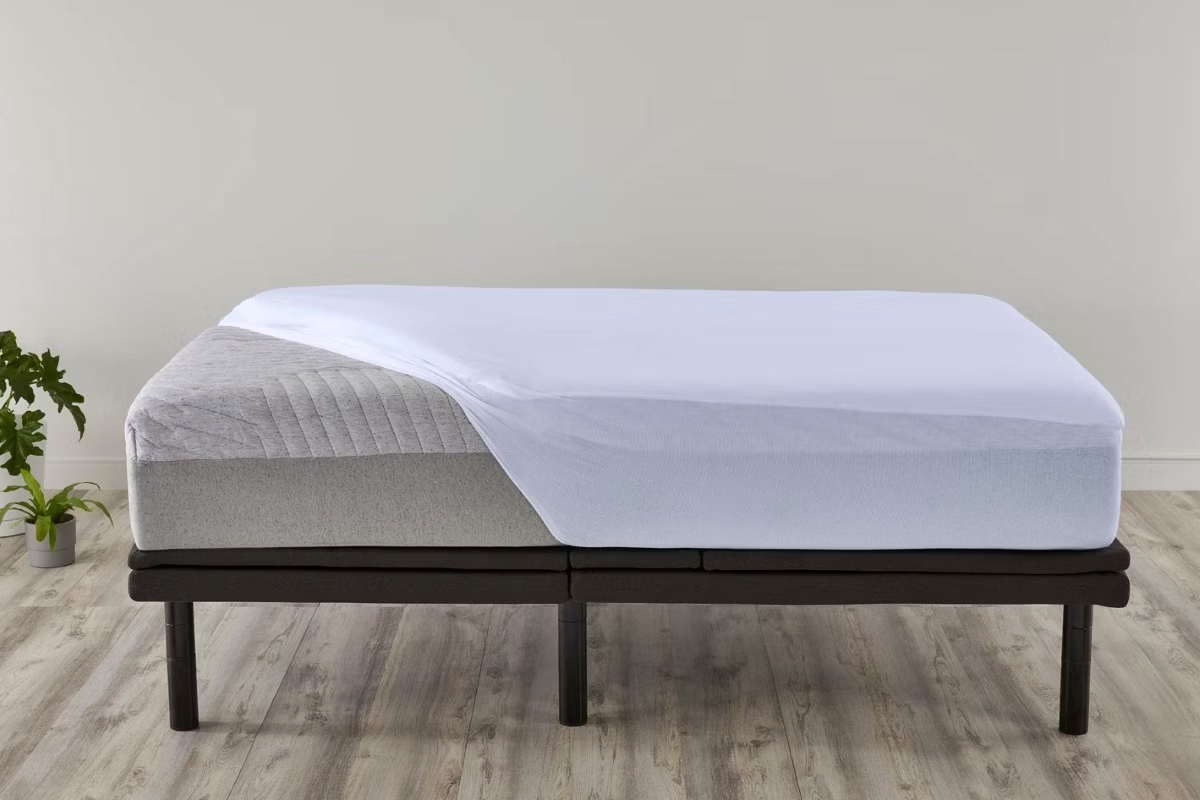Home>Furniture>Bedroom Furniture>What To Do If Your Mattress Is Too Soft


Bedroom Furniture
What To Do If Your Mattress Is Too Soft
Modified: October 21, 2024
Discover effective solutions for dealing with a soft mattress in your bedroom. Explore tips and tricks to improve your sleep quality with the right bedroom furniture.
(Many of the links in this article redirect to a specific reviewed product. Your purchase of these products through affiliate links helps to generate commission for Storables.com, at no extra cost. Learn more)
Introduction
Having a comfortable and supportive mattress is essential for a good night’s sleep. However, if your mattress is too soft, it can lead to a range of issues, including discomfort, back pain, and restless nights. Thankfully, there are several steps you can take to address the problem and make your soft mattress firmer.
In this article, we will explore the reasons why a mattress may be too soft, the signs that indicate your mattress is too soft, potential health issues that can arise from sleeping on a soft mattress, and finally, some effective strategies to make your soft mattress firmer.
Let’s dive in and discover how you can transform your overly soft mattress into a supportive and comfortable sleep surface.
Key Takeaways:
- Identifying the reasons for a soft mattress, such as poor quality, wear and tear, or overuse, is crucial for finding the most effective solution to make your mattress firmer and improve sleep quality.
- Utilize mattress toppers, adjust the frame or foundation, try mattress firmness kits, or consider a mattress replacement to address the discomfort and health issues caused by a soft mattress and achieve a supportive and rejuvenating sleep experience.
Read more: How To Tell If A Mattress Is Too Soft
Reasons for a Soft Mattress
There are several reasons why your mattress may become too soft over time. Understanding these reasons can help you identify the underlying issue and find the right solution. Here are some common causes for a soft mattress:
- Poor Mattress Quality: Low-quality mattresses are more prone to losing their firmness as they age. The materials used may deteriorate, resulting in a less supportive sleep surface.
- Wear and Tear: Continuous use and regular body weight exertion on the mattress can lead to sagging and indentation, making the mattress feel softer than before.
- Incorrect Maintenance: Improper care can also contribute to a mattress becoming too soft. Not rotating or flipping the mattress regularly can lead to uneven wear and tear, causing it to lose its original firmness.
- Overuse: If your mattress is used frequently, such as in hotels or guest rooms, it may become softer over time due to constant pressure from different individuals.
- Age: It’s natural for mattresses to lose some firmness over time, especially if they are older. The materials may break down, resulting in decreased support and a softer feel.
Identifying the reason behind the softness of your mattress is crucial in determining the most effective solution. Whether it’s due to poor quality, wear and tear, improper maintenance, overuse, or simply the natural aging process, addressing the root cause will help you find the best fix.
Signs Your Mattress Is Too Soft
Sleeping on a mattress that is too soft can have detrimental effects on your comfort and overall sleep quality. Here are some signs that indicate your mattress may be too soft:
- Lack of Support: One of the primary indicators of a soft mattress is a lack of proper support. If you notice that your body sinks too deeply into the mattress, especially in the hip and shoulder areas, it’s a sign that the mattress is too soft.
- Back Pain: A soft mattress may not provide adequate spinal alignment, leading to back pain. If you wake up with discomfort or stiffness in your back, it could be a result of insufficient support from your mattress.
- Weak Edge Support: When a mattress is too soft, the edges may lack proper reinforcement. This can result in poor edge support, making it challenging to sit or sleep near the perimeter of the bed without feeling like you might roll off.
- Restless Sleep: If you find yourself tossing and turning throughout the night, it could be due to your mattress being too soft. The lack of support can cause discomfort and disrupt your sleep, leading to a restless night.
- Sagging or Indentation: Over time, a soft mattress may develop visible sagging or indentation in areas where you frequently sleep. This can further contribute to the lack of support and discomfort.
- Allergies or Dust Accumulation: A mattress that is too soft may also be more prone to collecting allergens, dust mites, and other microscopic particles. This can worsen allergies and affect the overall cleanliness of your sleeping environment.
Paying attention to these signs can help you determine whether your mattress is too soft and needs attention. If you experience any of these issues, it may be time to take steps to make your mattress firmer for a more restful and supportive sleep experience.
Potential Health Issues with a Soft Mattress
While a soft mattress may initially feel cozy and comfortable, sleeping on one that lacks proper support can lead to various health issues. Here are some potential health problems that can arise from sleeping on a soft mattress:
- Back and Neck Pain: Soft mattresses do not provide adequate support for your spine, which can lead to misalignment and pressure points. Over time, this can result in chronic back and neck pain, making it difficult to relax and sleep comfortably.
- Joint Stiffness: Insufficient support from a soft mattress can cause your joints to bend unnaturally during sleep. This can lead to stiffness and discomfort in the morning, making it more challenging to start your day.
- Postural Issues: When your mattress is too soft, it can cause your body to sink in, throwing off your natural alignment. This can lead to poor posture and posture-related issues, including muscle imbalances and spinal misalignment.
- Sleep Disturbances: Soft mattresses often lack motion isolation, meaning that you may feel every movement of your partner or pet during the night. This can result in sleep disturbances and a decrease in sleep quality.
- Allergic Reactions: Soft mattresses tend to accumulate more dust mites, allergens, and other microorganisms that can trigger allergies and respiratory issues. This can exacerbate existing allergies or even cause new ones to develop.
- Sleep Apnea Exacerbation: Individuals with sleep apnea require proper support to maintain an open airway during sleep. A soft mattress can cause the body to sink in, potentially exacerbating breathing-related sleep disorders.
It’s important to note that the impact of a soft mattress on your health can vary from person to person. While some individuals may experience noticeable discomfort and issues, others may not be as significantly affected. However, if you are experiencing any of these health problems and suspect that your mattress may be the cause, it’s worth considering steps to make your mattress firmer and more supportive.
How to Make a Soft Mattress Firmer
If you’ve determined that your mattress is too soft and it’s causing discomfort or sleep issues, there are several strategies you can try to make it firmer. Here are some effective methods to enhance the firmness of a soft mattress:
- Using Mattress Toppers: Mattress toppers are thin layers of foam or other materials that can be placed on top of your mattress to add extra support and firmness. Look for a topper with a density that suits your preference, and consider options like latex or memory foam for optimal comfort.
- Adjusting the Frame or Foundation: Sometimes the issue isn’t with the mattress itself but with the frame or foundation it rests on. Check if your bed frame or foundation is providing adequate support, and make adjustments or replacements if necessary. A solid and sturdy base can greatly improve the overall firmness of your mattress.
- Trying Mattress Firmness Kits: Some companies offer mattress firmness kits that allow you to adjust the firmness level of your mattress. These kits typically include inserts or layers that can be placed inside the mattress to make it firmer. It’s important to follow the instructions carefully to ensure proper installation and achieving the desired level of firmness.
- Considering a Mattress Replacement: If your mattress is old, worn out, or of low quality, it may be worth considering a complete mattress replacement. Look for mattresses with a firmer feel, and consider options such as hybrid mattresses or those with a medium-firm to firm rating. Be sure to try out different models and consult reviews to find the right fit for your needs.
- Supportive Bedding Accessories: In addition to mattress toppers, you can also try using supportive bedding accessories. This includes opting for firmer pillows that provide better neck and head support, as well as experimenting with different types of mattress pads or protectors to add an extra layer of firmness.
- Regularly Rotate and Flip Your Mattress: Proper mattress maintenance is essential for maintaining its firmness. Rotate and flip your mattress regularly to ensure even wear and distribute your body weight evenly. This can help prevent sagging and maintain a firmer sleep surface.
Remember that the effectiveness of these methods may vary depending on the specific condition of your mattress. It’s important to assess your mattress and experiment with different solutions to find the one that works best for you in achieving the desired level of firmness.
By taking proactive steps to make your soft mattress firmer, you can improve your sleep quality, alleviate discomfort, and wake up feeling refreshed and rejuvenated.
Consider adding a firm mattress topper or a supportive mattress pad to provide extra support and reduce the sinking feeling. This can help make your mattress feel firmer and more comfortable.
Read more: What Is The Best Soft Mattress
Using Mattress Toppers
One effective method to make a soft mattress firmer is to use a mattress topper. Mattress toppers are additional layers of padding that can be placed on top of your existing mattress to enhance its comfort and support. Here’s how you can utilize mattress toppers to make your mattress firmer:
1. Choose the Right Type of Mattress Topper: There are various types of mattress toppers available, including memory foam, latex, cotton, and wool. Each material has its own pros and cons in terms of firmness, support, and comfort. Consider your preferences and specific needs when selecting a mattress topper.
2. Look for High Density Toppers: To increase the firmness of your mattress, opt for a mattress topper with a higher density. Higher density foam toppers provide better support and can help counteract the softness of your mattress. Look for a density of at least 3 pounds per cubic foot.
3. Check the Thickness: The thickness of the mattress topper also affects the firmness level. Thicker toppers tend to offer more cushioning and can make the mattress feel softer, while thinner ones provide a firmer surface. Consider your desired level of firmness when choosing the thickness of the mattress topper.
4. Proper Placement: Place the mattress topper on top of your mattress and secure it with fitted sheets to ensure it stays in place. This will enhance the overall support and firmness of the sleep surface.
5. Evaluate the Comfort: It’s important to note that adding a mattress topper may change the overall feel and comfort of your mattress. Take some time to evaluate the firmness and comfort level after adding the topper. If it’s still too soft, you may need to experiment with different types or thicknesses of toppers.
6. Regular Maintenance: Just like your mattress, it’s important to maintain and clean your mattress topper regularly. Follow the manufacturer’s instructions for cleaning and care to ensure its longevity and performance.
Mattress toppers can be a cost-effective and convenient solution to make your soft mattress firmer. They provide an extra layer of support and can significantly improve your sleep experience. Experiment with different types and densities of mattress toppers to find the one that suits your needs and preferences best.
Adjusting the Frame or Foundation
Another approach to making a soft mattress firmer is by adjusting the frame or foundation on which the mattress rests. The right support system can significantly improve the overall firmness and stability of your mattress. Here are some steps to consider when adjusting the frame or foundation:
1. Evaluate the Current Support: Take a close look at your bed frame or foundation to determine if it is providing adequate support for your mattress. Check for any signs of damage, worn-out components, or structural issues that may affect the firmness of your mattress.
2. Tighten Loose Parts: If your bed frame has loose screws, brackets, or slats, it’s essential to tighten them to ensure proper support. Loose components can cause the mattress to sag and contribute to a softer feel. Use a screwdriver or appropriate tools to secure any loose parts.
3. Add Extra Support: If your bed frame or foundation lacks proper support for your mattress, consider adding additional support beams or slats. This can help distribute your body weight more evenly and provide better support to make the mattress feel firmer.
4. Check for Sagging or Bowed Slats: If your bed frame has slats, check if any of them are sagging or bowed. These issues can result in uneven support and contribute to the softness of the mattress. Replace any damaged or sagging slats to maintain a firmer sleep surface.
5. Upgrade to a Sturdier Frame or Foundation: If your current bed frame or foundation is old, worn-out, or insufficient, consider investing in a new one that is specifically designed to provide optimal support. Look for frames or foundations that offer adjustable firmness settings or have added features to enhance the overall firmness of your mattress.
6. Consider a Platform Bed or Solid Foundation: Platform beds or foundations with solid surfaces can provide excellent support and help make your mattress feel firmer. These options eliminate the need for slats or box springs, contributing to a more stable and supportive sleep surface.
By assessing and adjusting your bed frame or foundation, you can significantly improve the overall firmness and support of your mattress. A sturdy and properly aligned support system will help prevent sagging, enhance spinal alignment, and make your mattress feel firmer and more comfortable.
Trying Mattress Firmness Kits
If you’re looking for a customizable solution to make your soft mattress firmer, consider trying mattress firmness kits. These kits allow you to adjust the firmness level of your mattress to suit your specific preferences. Here’s how you can utilize mattress firmness kits:
1. Research Available Options: Begin by researching different mattress firmness kits available in the market. Look for reputable brands that offer adjustable inserts or layers specifically designed to enhance the firmness of a mattress.
2. Follow Manufacturer Instructions: Each mattress firmness kit comes with its own set of instructions for installation and adjustment. It’s crucial to carefully read and follow these instructions to ensure proper use and optimal results.
3. Determine Desired Firmness Level: Consider your personal preference and sleep needs when adjusting the firmness of your mattress. Some kits offer different firmness options, allowing you to find the perfect balance between comfort and support.
4. Install the Inserts or Layers: Typically, mattress firmness kits include inserts or layers that can be placed inside the mattress. These can be placed between the mattress layers or on top of the existing layers, depending on the kit’s design. Make sure to position the inserts according to the manufacturer’s guidelines.
5. Experiment with Adjustment: Adjust the firmness of your mattress gradually, taking note of how each change affects your comfort and support. It may take some trial and error to find the ideal firmness level that suits your needs.
6. Fine-Tune and Reassess: After making adjustments, spend some time sleeping on the mattress to gauge the effectiveness of the firmness kit. Pay attention to your comfort and any changes in sleep quality. If necessary, further fine-tune the firmness by adding or removing inserts.
7. Regularly Reevaluate: Over time, your preferences or needs may change. Reevaluate the firmness of your mattress periodically and make any necessary adjustments with the available inserts or layers to ensure ongoing comfort and support.
Mattress firmness kits provide a flexible and customized solution to make your soft mattress firmer. They allow you to experiment with different levels of firmness until you find the perfect balance for a comfortable and supportive sleep environment.
Remember to thoroughly research the available options and carefully follow the manufacturer’s instructions to achieve the desired firmness level effectively and safely.
Considering a Mattress Replacement
If your efforts to make your soft mattress firmer have not yielded satisfactory results, or if your mattress is old and worn-out, it may be time to consider a complete mattress replacement. Upgrading to a new mattress with the desired level of firmness can significantly improve your sleep quality and overall comfort. Here are some factors to consider when contemplating a mattress replacement:
1. Assess the Current Condition: Evaluate the condition of your current mattress. If it is showing signs of visible sagging, worn-out materials, or if you can feel the springs or support system, it’s likely time for a replacement. A mattress that has lost its firmness and support can contribute to discomfort and sleep disturbances.
2. Determine Your Preferred Firmness: Consider your personal preference when it comes to mattress firmness. Some individuals prefer a medium-firm feel, while others may opt for a firmer or softer sleep surface. Take into account your sleeping position, body weight, and any specific health considerations to determine the ideal firmness level for your new mattress.
3. Research Different Mattress Types: Explore the various mattress types available on the market, such as memory foam, latex, hybrid, or innerspring mattresses. Each type offers different levels of firmness and unique features. Research customer reviews, consult with experts, and visit mattress showrooms to gather information and test different models.
4. Test Before Purchase: It’s essential to test a mattress before making a final decision. Lie down on different mattresses for several minutes to assess the comfort, support, and firmness. Take note of any pressure points or discomfort. Don’t hesitate to ask questions and gather as much information as possible to make an informed decision.
5. Consider Hybrid or Medium-Firm Options: If you desire a relatively firmer mattress, consider hybrid options that combine the benefits of different materials, such as memory foam and coils, to offer a balanced level of support. Additionally, medium-firm mattresses are a popular choice as they cater to a wide range of sleep preferences and provide a good balance between comfort and support.
6. Warranty and Return Policy: Check the warranty and return policy offered by the mattress manufacturer or retailer. A generous warranty ensures that you are protected against manufacturing defects, while a flexible return policy allows you to exchange or return the mattress if it doesn’t meet your expectations.
Investing in a new mattress may seem like a significant financial commitment, but the benefits to your sleep, comfort, and overall well-being are worth it. A mattress replacement can provide the firmness and support you need for a restful and rejuvenating sleep experience.
Take the time to thoroughly research, test, and evaluate different mattress options to find the perfect fit for your needs and preferences. With the right mattress, you can enjoy nights of comfortable and supportive sleep.
Read more: What To Do If Curtains Are Too Long
Conclusion
Sleeping on a mattress that is too soft can lead to discomfort, back pain, and restless nights. However, there are several strategies you can employ to make your soft mattress firmer and enhance your sleep experience. Whether you choose to use mattress toppers, adjust the frame or foundation, try mattress firmness kits, or opt for a complete mattress replacement, finding the right level of firmness is crucial for a restful sleep.
Identifying the reasons for a soft mattress, such as poor quality, wear and tear, incorrect maintenance, overuse, or simply the natural aging process, can help you determine the most effective solution. Pay attention to signs that indicate your mattress is too soft, such as a lack of support, back pain, weak edge support, restless sleep, or sagging and indentation.
Aside from the discomfort and sleep issues caused by a soft mattress, it’s important to be aware of potential health problems that can arise. These may include back and neck pain, joint stiffness, postural issues, sleep disturbances, allergies, and even the exacerbation of sleep apnea.
When seeking to make a soft mattress firmer, consider utilizing mattress toppers made of high-density materials, adjusting the frame or foundation to provide proper support, experimenting with mattress firmness kits for customized solutions, or ultimately considering a mattress replacement if other methods have not yielded satisfactory results.
Remember to assess your comfort preferences, conduct thorough research, test different mattresses or accessories, and consider warranty and return policies before making a decision. Investing in a supportive and comfortable mattress will ultimately improve your sleep quality, alleviate discomfort, and contribute to your overall well-being.
By taking the necessary steps to address the issue of a soft mattress, you can transform your sleep environment into one that is properly supportive, ensuring you wake up feeling refreshed and rejuvenated each morning.
Frequently Asked Questions about What To Do If Your Mattress Is Too Soft
Was this page helpful?
At Storables.com, we guarantee accurate and reliable information. Our content, validated by Expert Board Contributors, is crafted following stringent Editorial Policies. We're committed to providing you with well-researched, expert-backed insights for all your informational needs.

